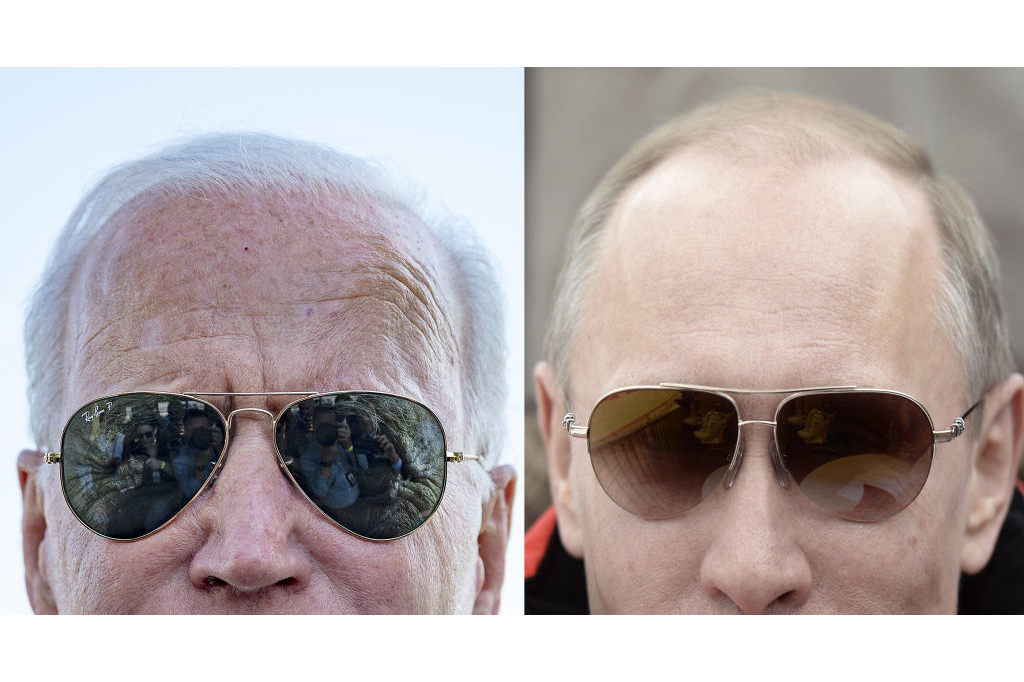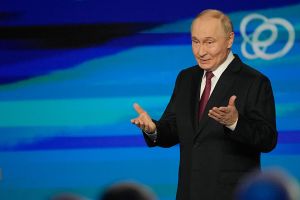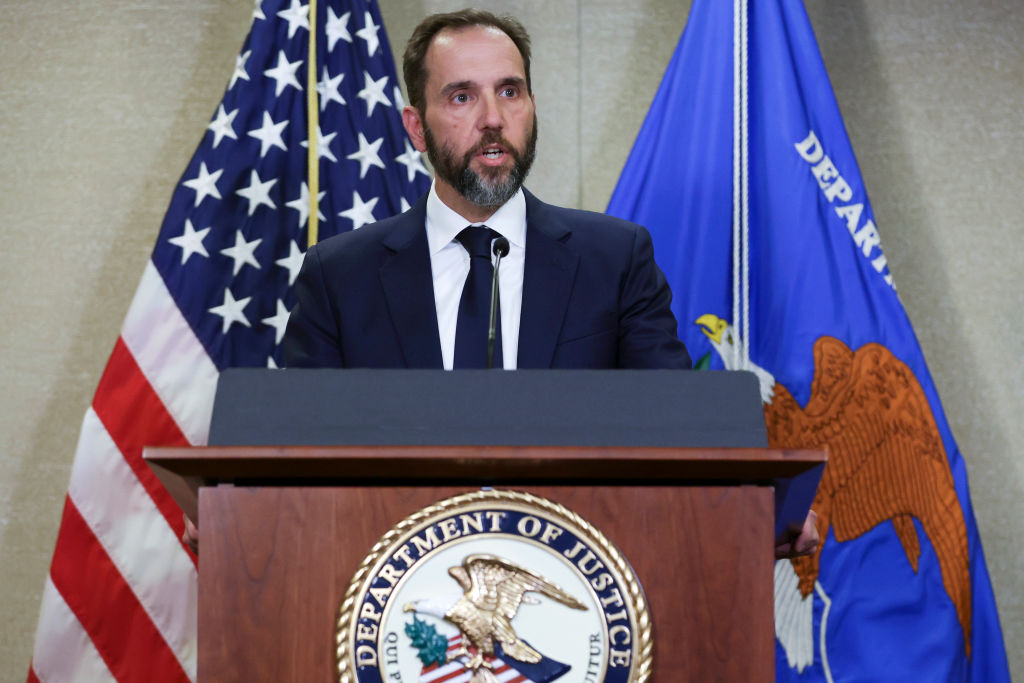You might not think that the British comedian Geoff Norcott, a self-proclaimed conservative, has something to contribute to western relations with Russia, but you’d be wrong. And it’s a shame that President Biden doesn’t seem to have read Where Did I Go Right? (Norcott’s account of his estrangement from his leftist roots), because time and time again, he illuminates the way that progressives’ enthusiasm for demonizing their opponents only entrenches them.
Take Remainers characterizing Brexiteers as racist xenophobes or gullible victims of obvious lies or Hillary Clinton’s claim that half of Donald Trump’s supporters were ‘deplorables…racist, sexist, homophobic, xenophobic, Islamophobic — you name it’? Neither example won many friends across the aisle.
It seems to apply especially to rhetoric about Russia. In public remarks at the National Counterterrorism Center on Tuesday, Biden described the country as having ‘an economy that has nuclear weapons and oil wells and nothing else. Nothing else’. In this, he was echoing his predecessor President Obama’s comments in 2016 that Russia’s ‘economy doesn’t produce anything that anybody wants to buy, except oil and gas and arms’.
Neither of these statements is really true, of course, but it will annoy the Russians. Considering everything the Kremlin has done, this may not seem to be a particularly salient concern. But it should be.
First of all, it’s bad analysis. Presumably Biden, aware of the continued anti-Russian sentiment in his Democratic party and concerns about his recent decision to acquiesce to the completion of the Nord Stream 2 gas pipeline between Russia and Germany, wanted to throw his base some red meat.
However, if he actually believes this, then perhaps it is unsurprising that the Kremlin has so often managed to outmaneuver the world’s last ostensible superpower. While Russia is still over-dependent on hydrocarbons, its service sector actually accounts for the largest share of its GDP, and there are all kinds of bright spots, including software and IT (it’s not all hackers and ransomware).
Even in military terms, Russia has demonstrated its capacity to project its forces into Syria against everyone’s expectations, and it has sustained that commitment. While the conflict there has not been won for Damascus yet, the imminent likelihood of it being lost has passed. More to the point, Moscow has as a result affirmed that it is again a serious player in the Middle East — and one willing and able to act in defiance of Washington’s wishes.
This is all well known to the US government’s extensive, well-funded and highly expert intelligence analysts. But the problem — and this applies as much to Russia as to America — is in getting that expertise into policy. A single compelling soundbite, a media-savvy lobbying campaign, a well-connected think tank with an ax to grind: if these come to dominate the public conversation, the debates in Congress and the White House orthodoxy, then they can be more influential than any wonkish position paper.
Besides it’s bad policy. Analysis of Kremlin actions based on interests is all very well, but especially within authoritarian systems it’s the attitudes of the boss and his cronies that really matter. Psychology is one of the underrated components of geopolitics.
When dealing with a 68-year-old President Putin, clearly consumed by thoughts of his legacy and surrounded by like-minded old men bitterly regretting the loss of Russia’s superpower status, belittling them is perhaps not the best way to get them to play nice.
It also alienates ordinary Russians. Many instinctively mistrust the toxic propaganda of the government. But even if they are no fans of the regime, they are patriots. Understandably, they react badly to Russia-bashing from western politicians looking for a quick headline.
If anything, this is actually creating a backlash, a sense that if the West insists on considering all Russians thuggish barbarians — vodka bottle in one hand, Kalashnikov in the other, out to hack, poison, invade and cheat at every opportunity — then that’s what they’ll be. Think of it as the ‘Millwall syndrome’, after the soccer club’s fans defiantly adopted the chant ‘No one likes us, we don’t care!’
It’s not that Russia ought to be given a pass — far from it. When the Kremlin demonstrates aggression or perfidy, this needs to be called out. But overheated rhetoric encourages woolly-thinking at home and a backlash in Russia. By all means let us make sure we carry a big stick — then we can also speak softly.
This article was originally published on The Spectator’s UK website.

























